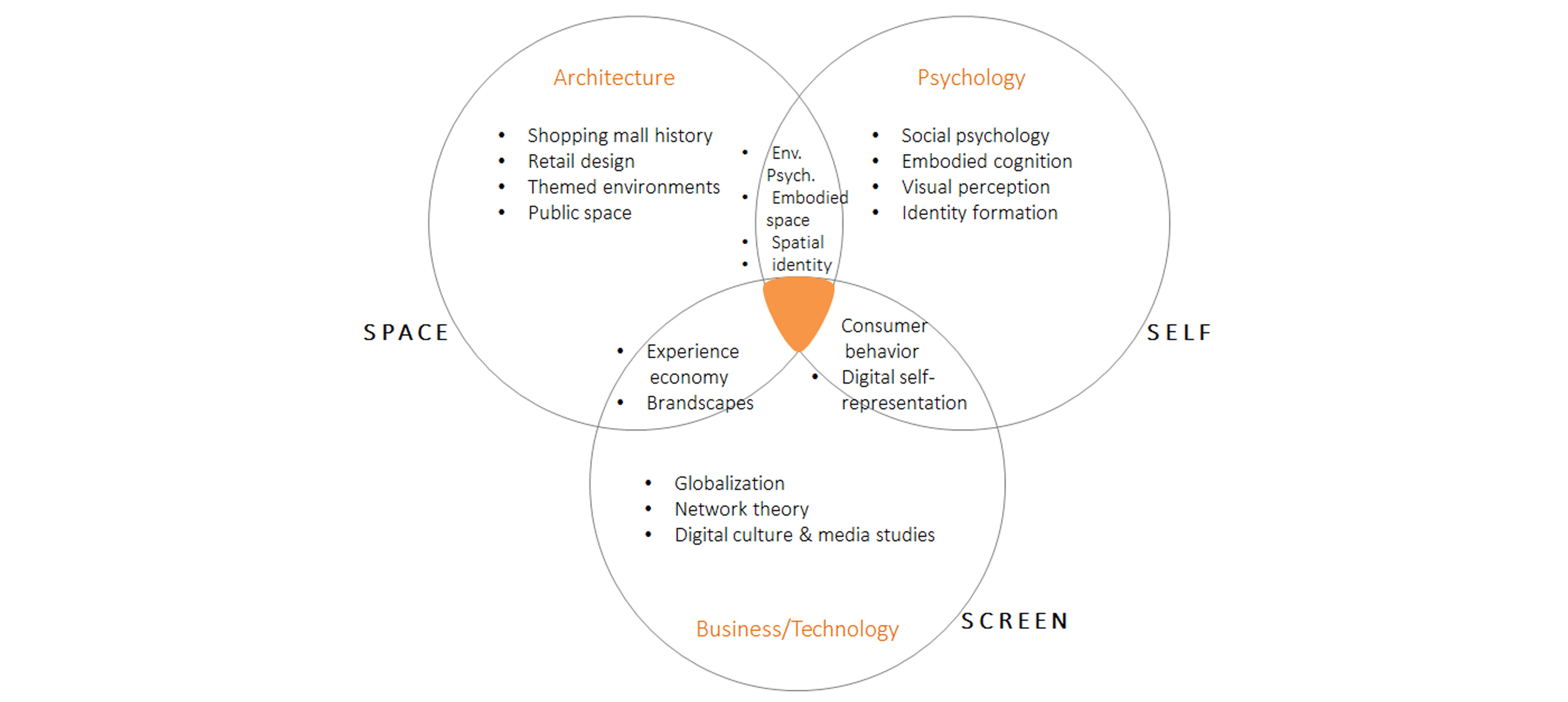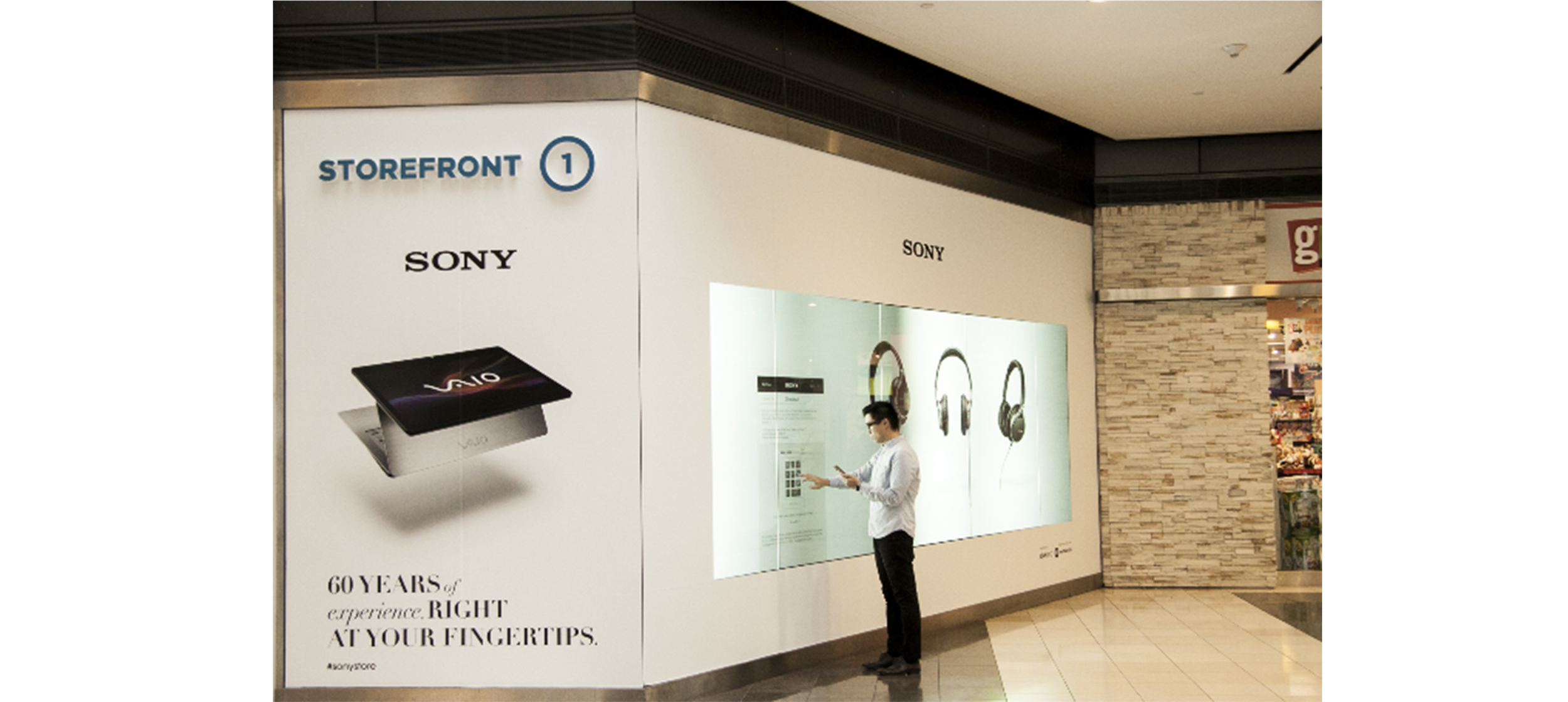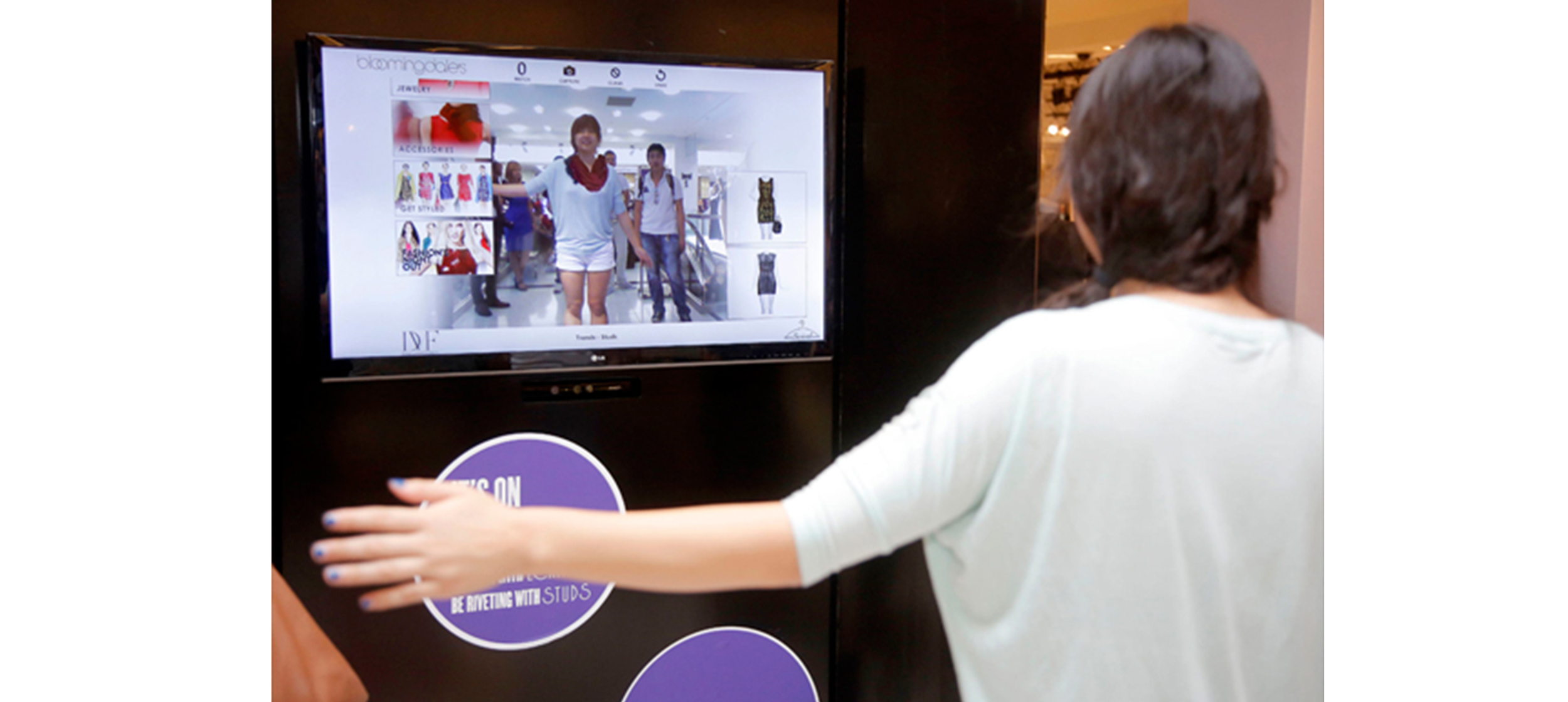Self, Space, Screen: Embodied Relationships in Hybrid Retail Environments
Master of Environmental Design thesis, Yale University School of Architecture. In Progress.
Research Statement/Abstract
My thesis investigates the interface between people and screen technologies in hybrid retail environments. It focuses on the newly crystallizing landscape of data and technology objects in retail (and other public) spaces and its implications for the embodied, networked experience of consumption. Building from multidisciplinary theoretical frameworks, the thesis uses a series of case studies that highlight the complex relationship between self, space, and screen in a rapidly technologizing and globalizing context. These include high-end “connected stores,” designed in partnership with technology companies and mall developers, interactive digital wayfinding, fitting room technologies, and virtual aisles in urban public spaces.
In recent years, much has been written about embodiment and technology, yet architectural interpretations of interactive screen technology – particularly with respect to questions of consumerism, ownership, and identity – are rare. On the other hand, the vast body of scholarship on spaces and cultures of consumption rarely accounts for the role of the body, or the convergence of commercial space and interactive screen technology. In our current era of overwhelming access to information, ubiquity of personal technology, and opportunities for consumption, it is important to bridge this gap in scholarship to more humanistically and synthetically theorize the physical-virtual interface.
To appropriately address the dynamic nature of the contemporary sites of study, the thesis also relies on field observation and archival research (historical and more contemporary) to trace the genealogies of the technology and being studied. Through these methods, the thesis examines how screen technologies set up new relationships between the consumer-subject and the object of desire, retail space, and the consumer’s own self-image and identity. The thesis argues that these novel relationships produce (and are produced by) slippages between consumer agency and corporate strategy. This new network at the intersection of consumerism and technology that demands a critical study. The thesis poses a framework for insurgent consumption and more truly human-centered use of technology that amplifies human agency.





